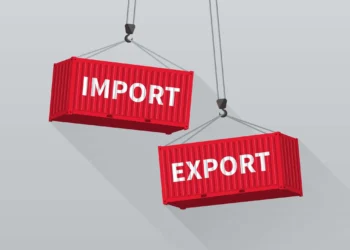Through the support of the European Union (EU) and Sweden under the European Neighborhood Program on Agriculture and Rural Development (ENPARD) IV, the Food and Agriculture Organization of the United Nations (FAO) has provided 102 Georgian dairy farmers with food safety-related equipment to improve their production practices and quality standards. They are eligible for a matching grant scheme, ongoing until December 31, 2024, within the framework of the program.
FAO’s intervention through support packages aims to provide smallholder women producers of milk and dairy products with the means and opportunity to improve food safety conditions at the farm level, thus reducing any potential foodborne risks for final consumers.
The ongoing EU and Sweden-funded matching grant opportunity is being offered in the Samegrelo-Zemo Svaneti region, as well as in Adigeni, Gori, Samtredia, and Tsalka municipalities.
The support package is available for dairy women farmers who:
- Own between six and 20 cows;
- Have attended FAO Georgia’s food safety training sessions implemented under the EU and Sweden-funded ENPARD IV.
Notably, FAO’s food safety training sessions are offered regularly in the regions and municipalities listed above. Therefore, interested women dairy farmers with six to twenty cows who have not yet attended these educational meetings can do so in the coming months to become eligible to apply for such matching grant opportunities.
The support package includes co-funding for the following dairy production inventory:
- Portable milking machines;
- Cooling tanks with a maximum capacity of 500 liters;
- Pasteurizers with a maximum capacity of 500 liters;
- Portable milk analyzers.
“With the matching grants opportunities, we are providing smallholder women farmers with a chance to enhance their production efficiency, food safety, and output quality. This way, we are supporting farmers in becoming more competitive in national and possibly international markets while also paving the way for improved access to safe, high-quality, nutritious foods for final consumers. Most importantly, the food safety equipment that we deliver to dairy women farmers can support them in putting into practice the knowledge gained through FAO food safety training sessions,”says Guido Agostinucci, FAO Program Manager.
“Women lead the dairy sector in Georgia, and 102 professionals are now empowered to produce more, better, and higher-quality products with improved efficiency. Notably, the equipment delivered to the ENPARD IV grantees is now in the safe hands of knowledgeable farmers ensuring their dairy products meet the food safety and quality standards. As part of the ongoing matching grant cycle, I look forward to witnessing more women farmers receiving such investment opportunities to diversify and increase their income and to advance the Georgian dairy sector and its contribution to the rural economy,” says Denis Reiss, Program Officer for Sustainable Food Systems at the Delegation of the European Union to Georgia.
“Improved access to agricultural equipment that advances production efficiency and food safety is truly a step forward for smallholder women farmers focused on advancing their agribusinesses. Under ENPARD IV, we are empowering a network of such women. Coupled with the knowledge-sharing platforms, the ongoing matching grant opportunity gives them the possibility to make dairy production processes faster and safer. This leaves more time for rural women to accomplish other goals while becoming more competitive in the national market,” says Elisabet Brandberg, Head of Development Cooperation/Deputy Head of Mission, Embassy of Sweden.
More information about the ongoing grant opportunities for smallholder women dairy farmers is available at faogrants.ge/sp5














